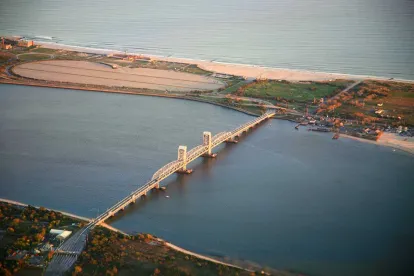The Massachusetts Supreme Judicial Court (SJC) decided a case this week clarifying the limitation on a municipality’s ability to regulate wetlands and waterway construction more stringently than would the Department of Environmental Protection. City of Boston v. Conservation Comm’n of Quincy, No. SJC-13244 (Mass. July 25, 2022). Interestingly, this decision follows closely on the heels of Armstrong v. Sec’y Energy & Envtl. Affairs, No. SJC-13210 (Mass. July 12, 2022), which limited municipalities’ ability to be less restrictive than DEP about waterfront development. See DEP’s Municipal Harbor Plan Regulations Invalid.
Massachusetts requires an “order of conditions” under the Wetlands Protection Act, Mass. Gen. L. ch. 131, § 40, before anyone can do work affecting wetlands or nearby areas. The local conservation commission typically issues that order of conditions, but a disappointed applicant may seek a superseding order from the Department of Environmental Protection. The DEP order preempts the local conservation commission decision unless the more restrictive local order is based on a local ordinance that is more stringent than the Wetlands Protection Act. We addressed this scheme in Local Preemption and Wetlands in Massachusetts.
But how does one know that the local ordinance is more stringent than the Wetlands Protection Act and that that enhanced stringency is the basis for a local decision either to deny an order of conditions or to issue an order with more restrictive conditions than DEP would impose?
In City of Boston, the SJC held that the City of Quincy Conservation Commission’s denial of an order of conditions was preempted by DEP’s superseding order of conditions even though the local ordinance was arguably more stringent, because the commission did not explain in its decision or in any briefing in the case why the denial was required by more stringent local provisions. Boston sought to reconstruct a bridge in Boston Harbor that was located partially in Quincy. The Quincy Conservation Commission refused to issue an order of conditions, thus prohibiting the project. Boston sought, and DEP granted, a superseding order of conditions that permitted the construction Boston planned. The Quincy Conservation Commission appealed the issuance of the superseding order, arguing that its denial should be enforced since it was based on more stringent local provisions. But the language in the denial to which the Commission pointed did not clearly support the more stringent conditions.
This outcome puts a thumb on the scale in favor of preemption. However, the weight of that thumb depends critically on the local provisions, the details of the administrative record, and the local conservation commission decision. Will this lead to more and messier litigation, requiring courts to parse local provisions and determine their stringency vis-à-vis the Wetlands Protection Act, or will the thumb itself cause more local conservation commissions to acquiesce in DEP superseding orders of conditions? Stay tuned.





 />i
/>i

